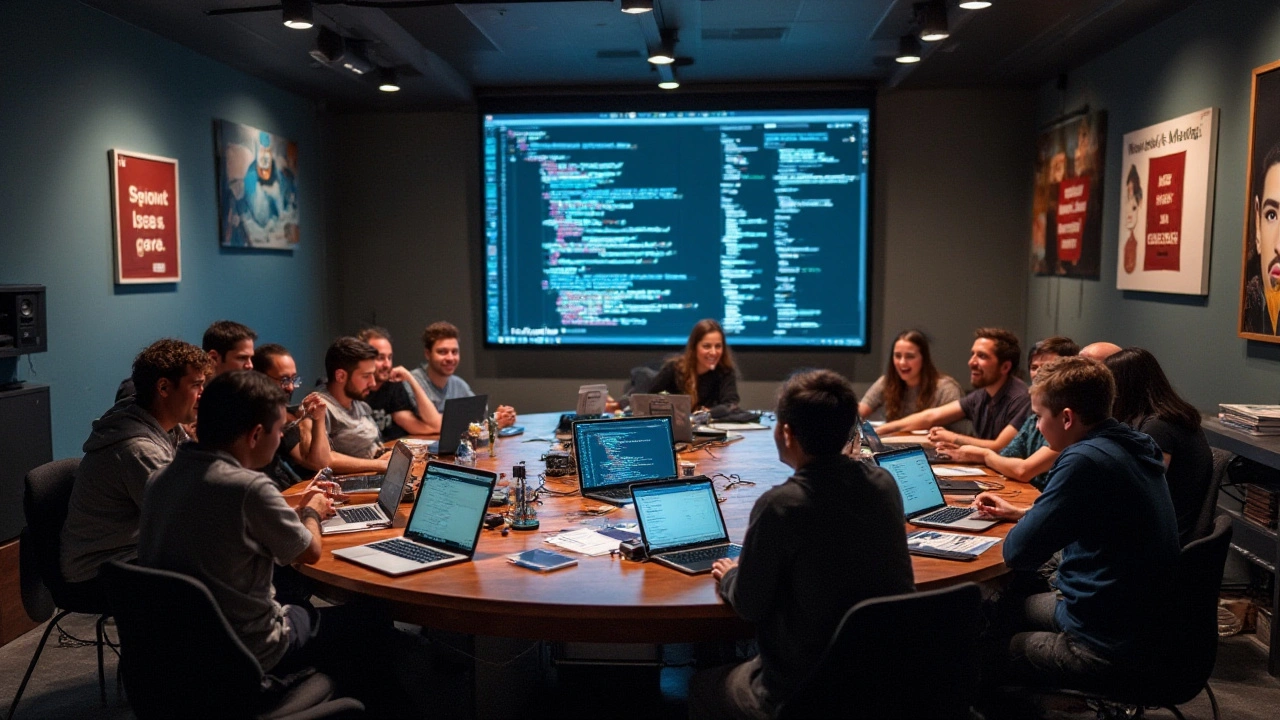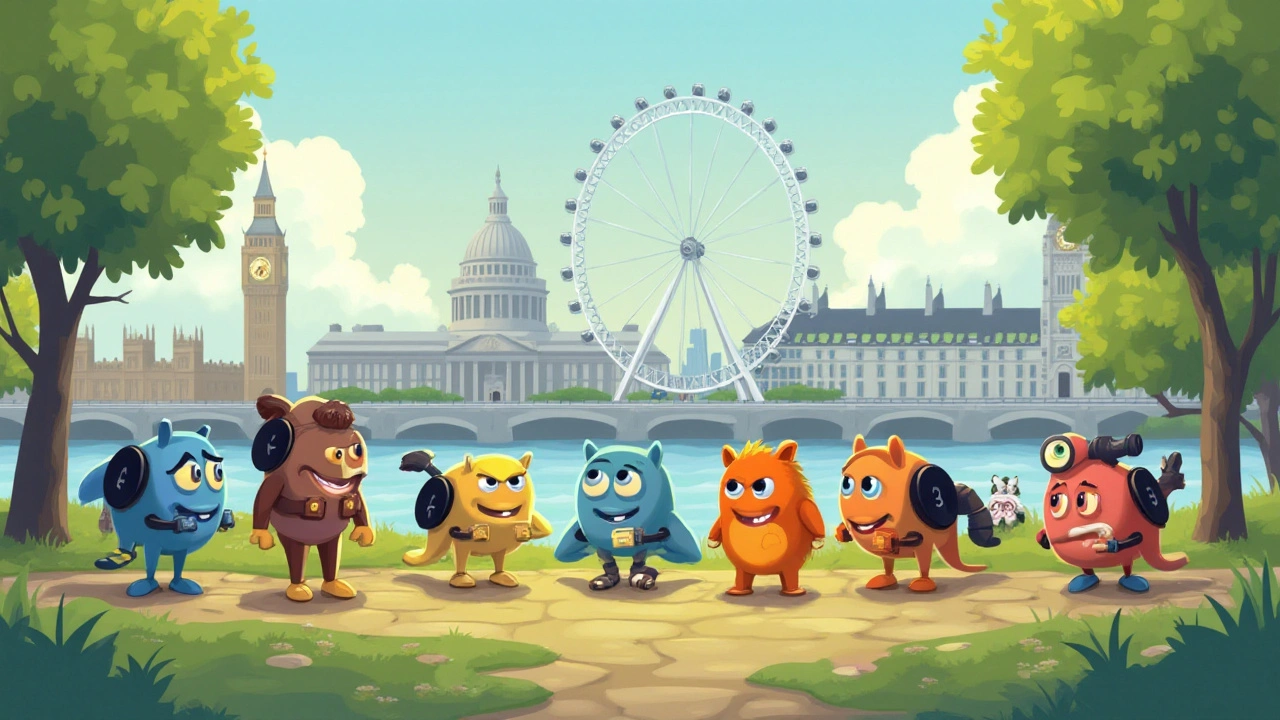Diving into the world of programming can feel like stepping into a bustling city where everyone speaks a different language. The good news is, with the right approach, anyone can attain fluency and start writing code with confidence. This guide serves as your roadmap, simplifying the path to becoming a proficient programmer.
We'll start with choosing a programming language that aligns with your goals and interests. From there, we'll explore strategies that make learning not just effective, but enjoyable. You'll also discover indispensable tools that simplify coding, along with resources that support your learning journey. Finally, we'll get hands-on with exercises designed to cement your new skills and build your confidence.
- Choosing Your First Programming Language
- Effective Learning Strategies
- Essential Tools and Resources
- Hands-on Coding Exercises
Choosing Your First Programming Language
When you're just starting out in the world of programming, one of the most daunting decisions can be selecting your very first language. It's a bit like picking a key to open the treasure chest of coding opportunities, and it's important to make a thoughtful choice. The right language for you really hinges on your specific interests or career aspirations, so let’s dig into some popular options and what they’re good for.
Python is often recommended for beginners and with good reason. Its syntax reads almost like plain English, which makes it perfect for newbies who want to understand the fundamental concepts of programming without getting bogged down by intricate, bulky syntax. Python is also a versatile language that you can use for web development, data analysis, artificial intelligence, and more. Did you know that major companies like Google and NASA use Python in their tech stacks? That's how powerful yet accessible it is. If coding a complex algorithm sounds enticing, Python might be your language of choice.
On the other hand, if you’re dreaming of developing the next cutting-edge mobile app or interactive website, JavaScript might be the way to go. It's the backbone of web development and, alongside HTML and CSS, makes up the holy trinity of frontend development. JavaScript is incredibly popular, clocking in as the most used programming language in recent years. A recent study suggests that JavaScript is used by over 97% of websites. That’s huge and a testament to its essential nature in web technology.
"Choosing the right programming language can be as crucial as embarking on a journey with the right map."
For those drawn to enterprise applications or backend development, Java could be a compelling choice. It’s well-known for its 'write once, run anywhere' capability, which means you can develop applications that are platform-independent. Java is widely used in Android app development and has a robust community, which means there's plenty of support out there if you ever find yourself stuck.
Don't forget about C++, a language that's very powerful, especially when it comes to performance-heavy applications like game development, real-time systems, and resource-intensive applications. Yes, it can be complex for beginners, but mastering C++ can give you a deep understanding of how computers work, which is invaluable in the long run. If you enjoy understanding the nuts and bolts of programming, C++ is definitely worth considering.
To help illustrate the varied uses of these programming languages, here’s a simple table summarizing some of their typical applications:
| Language | Typical Use |
|---|---|
| Python | Data Science, Web Development, Automation |
| JavaScript | Web Development, UI/UX Design, Interactive Websites |
| Java | Enterprise Solutions, Android Development, Backend Systems |
| C++ | Game Development, High-Performance Applications |
In the end, the best language to start with is the one that aligns with your interests and future goals. Remember, the point is to learn programming concepts which are often transferable from one language to another. As you grow as a coder, you’ll likely pick up multiple languages, each offering its own unique set of tools and perspectives. So, take the plunge, pick that first language, and begin your coding adventure!

Effective Learning Strategies
Getting a grip on coding involves more than just staring at lines of text—it’s about engaging with the material and finding the right methods that work for you. One of the most effective ways to learn is by doing. Skim through resources, but set aside ample time for actual coding. The hands-on approach is invaluable. Start small, write simple programs, and gradually increase the complexity as your confidence grows. Engaging directly with the code helps you understand concepts more deeply and spot errors faster.
Another key strategy is to embrace the power of community. Joining coding forums, attending meetups, or even participating in hackathons can provide a sense of belonging and offer unique perspectives. Fellow learners and experienced developers can offer advice, share solutions, and provide support when you hit a snag. Often, a fresh pair of eyes can see things you might miss. A quote from the late and great Dennis Ritchie, the creator of C language, goes:
“The only way to learn a new programming language is by writing programs in it.”It emphasizes the importance of staying actively engaged with the learning process.
Organizing a structured learning schedule proves to be beneficial. Set aside a specific time each day dedicated solely to learning and practicing programming. Having a routine reinforces discipline and makes it easier to track progress. You can find a balance by mixing reading, watching tutorials, and coding exercises. This varied approach caters to different learning styles and prevents burnout. Consider using resources like Codecademy or free courses available on platforms such as Coursera, which can provide invaluable, structured learning at no cost.
Don’t overlook the importance of having a clear goal in mind. Whether it’s building your website, creating a mobile app, or automating mundane tasks, having a tangible objective can motivate you to push through difficult concepts. Per goals, you might even break them down into smaller milestones. Successfully achieving these can offer a sense of accomplishment and encourage you to tackle further challenges. One study showed that goal-setting can improve performance by over 15%, proving its importance even in learning something as technical as coding.
Lastly, don’t fear making mistakes. Mistakes are part of the learning process. They can offer some of the most important lessons in your programming journey. Instead of seeing them as failures, view them as stepping stones to becoming a better coder. Reflect on what went wrong and how you can avoid similar issues in the future. This mindset encourages resilience and fosters a deeper understanding of coding intricacies.

Essential Tools and Resources
When embarking on your coding journey, the tools you choose can make a tremendous difference in your learning curve and productivity. To begin with, selecting the right coding software sets the stage for a smooth experience. Integrated Development Environments (IDEs) like Visual Studio Code or PyCharm provide a user-friendly interface that most beginners find intuitive. These tools often include features such as syntax highlighting, which color-codes your code, making it easier to spot errors.
Using version control is another vital component in managing your projects, both big and small. Platforms like GitHub or GitLab offer seamless integration with many IDEs, allowing you to track changes and collaborate with others effortlessly. Many seasoned developers emphasize the importance of mastering Git early, as it will help you work efficiently and understand the concept of branches and merges. As software pioneer Damian Conway once said,
"Documentation is a love letter that you write to your future self."This underscores the value of properly understanding your tools and the code they help you create.
To supplement your coding tools, a wealth of online resources exists to support your learning. Communities like Stack Overflow offer a platform where you can ask questions and get answers from experienced developers. Meanwhile, tutorial sites such as Codecademy and freeCodeCamp provide interactive courses that teach you the fundamentals incrementally. The beauty of these resources lies in their accessibility, allowing you to learn at your pace while offering guidance on best practices.
While practical coding practice is essential, gaining a deeper insight into concepts is equally important. Books like "Clean Code" by Robert C. Martin dive into the philosophy of writing readable and maintainable code, which is crucial for any aspiring developer. This blend of resources—both digital and textual—equips you with a well-rounded understanding of programming tenets.
To put things into perspective, consider the statistics. A survey by Stack Overflow revealed that over 50% of developers rely on online courses and books to strengthen their coding skills. Such data emphasizes how crucial these resources are in crafting effective learning pathways. By leveraging the right mix of tools and materials, you can drastically speed up your transition from a novice to a seasoned programmer.
Ultimately, having the right resources on hand complements your effort and dedication. They offer myriad opportunities to solve problems, increase your efficiency, and refine your understanding of the code ecosystem. Remember, learning to code is not just about memorizing syntax but understanding the logic and problem-solving techniques that are universally applicable across different programming languages.

Hands-on Coding Exercises
There's an old saying in the coding world: "Practice makes a programmer." It's crucial to remember that to truly grasp programming skills, coding practice should be at the heart of your learning journey. Engaging hands-on can demystify complicated concepts and transform abstract ideas into solid understanding. The secret to effective practice lies in diversity—you should experiment with a range of exercises that challenge different aspects of your programming knowledge.
Begin by working on small, manageable projects. Choose exercises that relate to everyday problems, like creating a simple calculator, developing a to-do list application, or designing a basic webpage. These projects not only bolster your coding skills but also produce tangible results that can be deeply satisfying. As you build these small projects, you'll encounter real-world constraints and bugs that will hone your problem-solving abilities. Plus, overcoming these challenges is a significant confidence booster.
An important part of the learning process is collaboration. Find peer programming partners or join coding groups that can review your work and provide feedback. Often, working together unlocks different perspectives and insights, significantly enhancing the learning experience. As noted by Steve Jobs, "Great things in business are never done by one person. They're done by a team of people." You might also want to participate in coding competitions or hackathons for a more dynamic environment, where you can sharpen your skills under pressure.
Simulation and repetition are key to mastering syntax and commands across different programming languages. Use online platforms like LeetCode, HackerRank, or CodeWars that offer challenges sorted by difficulty and language. These platforms provide excellent opportunities for continuous practice and even compare your solutions with others to learn various approaches. They also track your progress, presenting a clear picture of your improvement over time, and ensure you’re consistently sharpening your skills.
Creating a portfolio of projects is another way to track your progress and showcase your abilities. As you complete exercises and projects, publish your code on platforms like GitHub. Maintaining an organized, clear record of your work not only demonstrates your commitment to learning but also builds a professional portfolio that can open doors to job opportunities in the coding industry.
To put things in perspective, here’s a simple exercise to kick off your journey: build a basic weather application using Python and a free API. This kind of project is both fun and functional. It will give you experience in fetching data from an external source, manipulating data structures, and presenting information in a user-friendly format. As you tackle this challenge, aim to enhance your problem-solving skills, read error messages carefully, and consult documentation frequently, as these habits lay the groundwork for a successful programming career.

